
Interactive Toys for Mental Stimulation
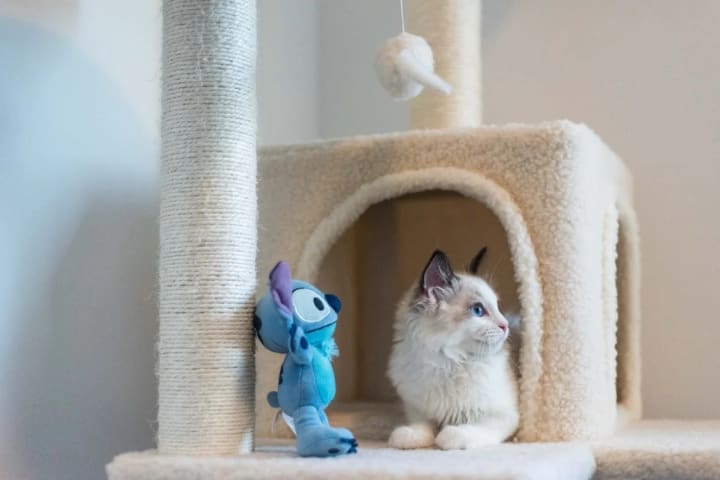
Interactive toys like laser pointers, wand toys, and puzzle feeders can help to keep your cat mentally stimulated and engaged. These toys challenge the cat to think and problem-solve as they try to catch or figure out how to access the treat inside the puzzle feeder.
Encouraging Foraging Behavior with Food-dispensing Toys

Food-dispensing toys like treat balls, puzzle feeders, and automatic feeders can be used to encourage foraging behavior in cats. This mimics their natural hunting instinct and keeps them mentally and physically active while eating.
Variety in Food for Feline Interest
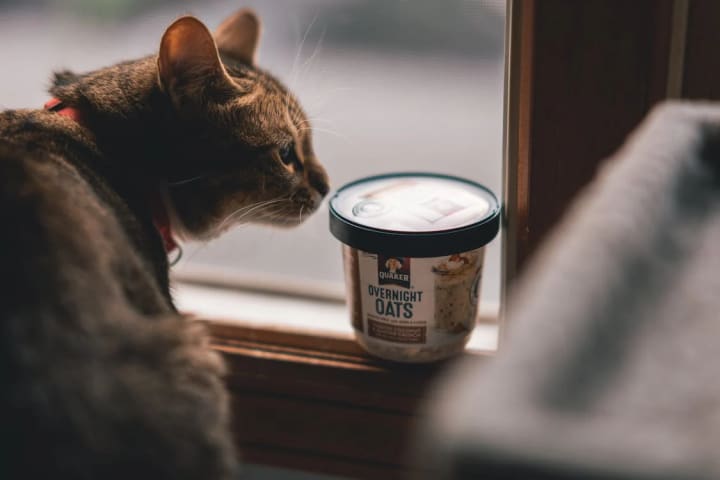
Cats can get bored with eating the same food every day, so it's important to offer a variety of textures and flavors. This will keep them interested and engaged in their meals and ensure that they are getting all the necessary nutrients.
Satisfying Natural Instincts with Climbing, Scratching, and Hiding
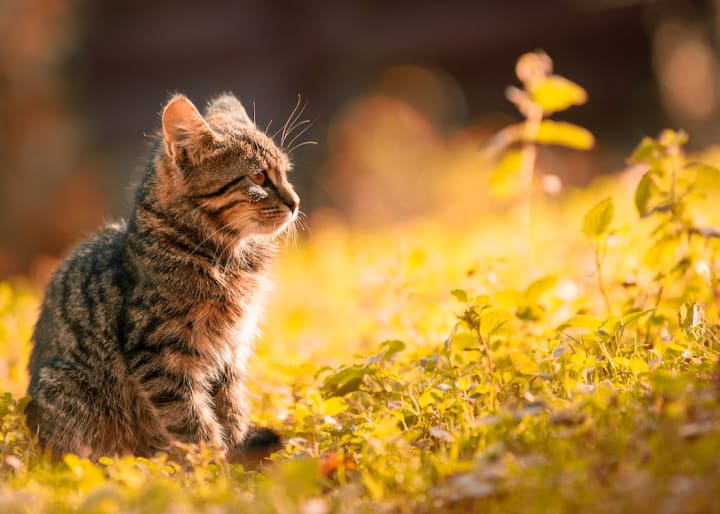
Providing climbing structures, scratching surfaces, and cozy hiding spots can fulfill a cat's natural instincts and promote physical activity.
Regular Playtime for Stronger Bond & Stimulation
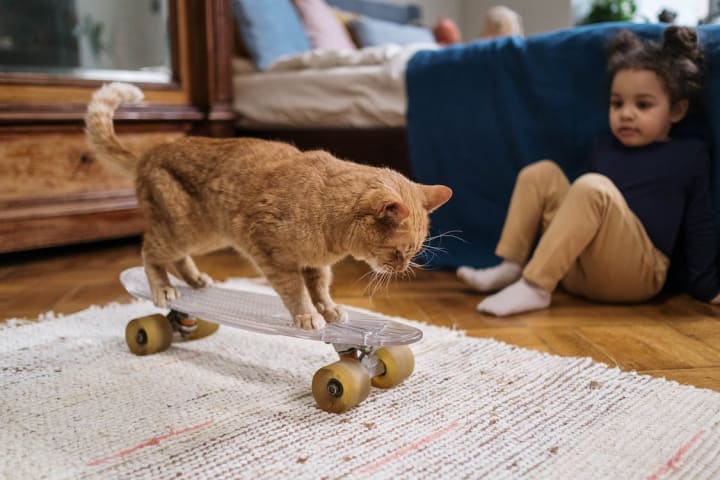
Regular playtime with your cat can help to strengthen your bond and provide mental and physical stimulation. Playing with your cat using toys and games can help to keep them active and engaged.
Stimulating Environment for Active Engagement
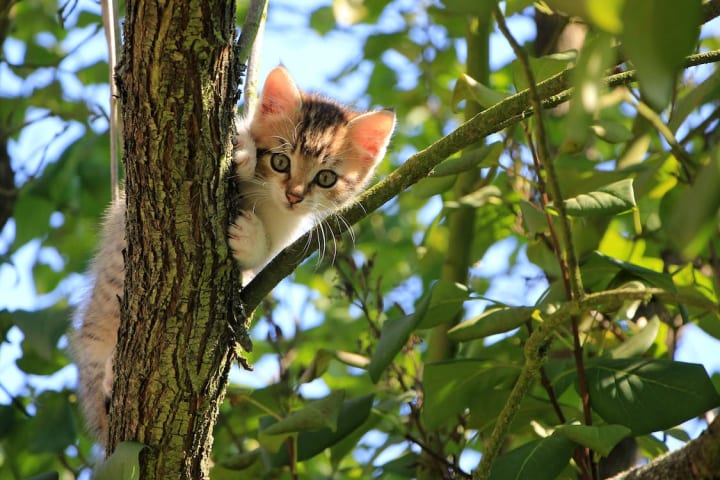
Providing a stimulating environment that includes plenty of hiding spots, scratching posts, and perches will keep the cat engaged and active. This also gives them a chance to explore and discover new things in their surroundings.
Keeping a Cat's Mind Active with New Experiences

Introduce new objects, scents, and experiences to your cat's environment to keep their minds active and curious. This can include new toys, different types of litter, and different scents.
Regular Grooming for Relaxation and Health
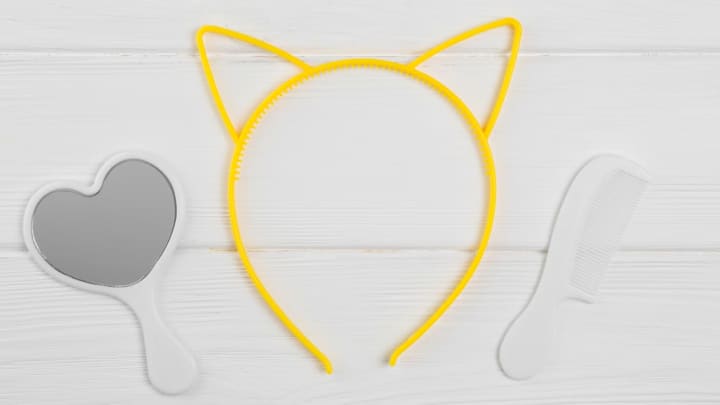
Regular grooming can help to keep your cat's coat healthy and shiny, and it can also be a bonding experience. Grooming also helps cats to relax and can reduce stress levels.
Balanced Diet for Optimal Brain Function

A healthy diet is essential for your cat's overall health, including brain function. Make sure to choose a high-quality diet that is appropriate for your cat's age, size, and activity level.
Love, Affection, and Attention for Feline Fulfillment
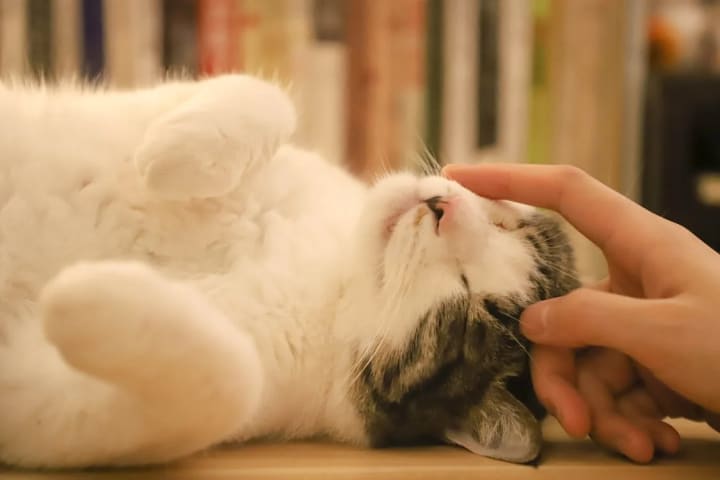
Cats are social animals and need plenty of love, affection, and attention. Spend time with your cat and show them affection to help them feel happy, secure and fulfilled. This will strengthen your bond and create a happy and healthy environment for your cat.
Teach your cat tricks and commands to exercise their brain and strengthen your bond
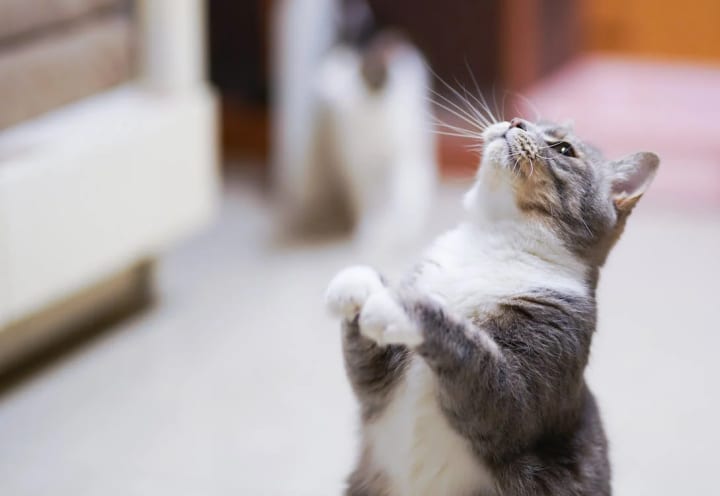
Teaching your cat tricks and commands can be a great way to exercise their brain and strengthen your bond with them. It can also be a fun and interactive way to spend time with your cat. Some tricks and commands you can teach your cat include sit, come, stay, roll over, shake, and high-five. You can start by teaching your cat simple tricks and commands using positive reinforcement techniques such as treats and praise. Consistency is key when training your cat, so it's important to practice regularly. As your cat becomes more comfortable with the commands, you can gradually increase the difficulty level. It's also important to keep in mind that every cat learns at their own pace, so be patient and don't get discouraged if your cat is not catching on quickly. Not only will training your cat help to keep their brain active, but it will also give them a sense of purpose and accomplishment. It's a great way to strengthen your bond with your cat and give them mental and physical stimulation.
Make sure to provide regular veterinary checkups to keep your cat healthy
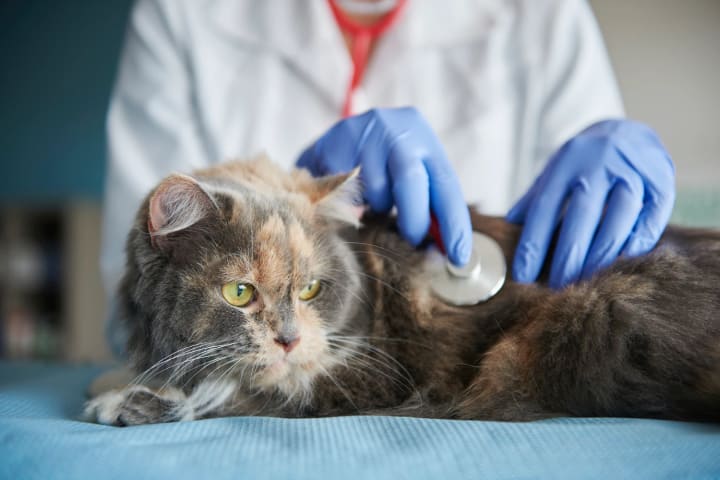
Regular veterinary checkups are essential to keep your cat healthy. During these checkups, the veterinarian will perform a physical examination, check your cat's vital signs, and look for any signs of illness or potential health issues. The veterinarian will also check your cat's eyes, ears, nose, teeth, and skin, as well as their weight and overall body condition. They will also discuss any concerns you may have about your cat's behavior or health and may recommend any necessary vaccinations or other preventive care.
It's also a good opportunity to discuss your cat's diet and exercise regimen, and to ask questions about any potential health issues that may be related to your cat's breed or lifestyle.
Regular veterinary checkups are also an opportunity for your veterinarian to detect any potential health issues early on, which can lead to earlier treatment and a better outcome for your cat. It's generally recommended that cats have an annual checkup, but if your cat has any chronic health issues or is getting older, your veterinarian may recommend more frequent checkups.
It is also important to keep a record of your cat's medical history, including vaccinations, test results, and any treatments or medications given, this will help the veterinarian to have a clearer picture of your cat's health.
By making sure to provide regular veterinary checkups, you can help to ensure that your cat stays healthy and happy for many years to come.





Comments
There are no comments for this story
Be the first to respond and start the conversation.